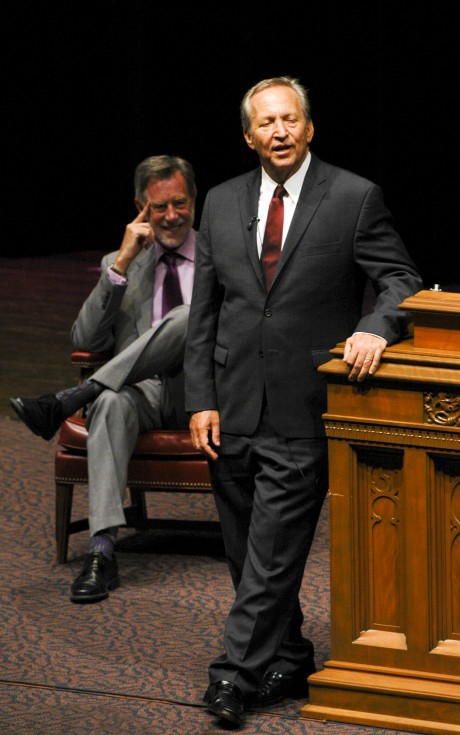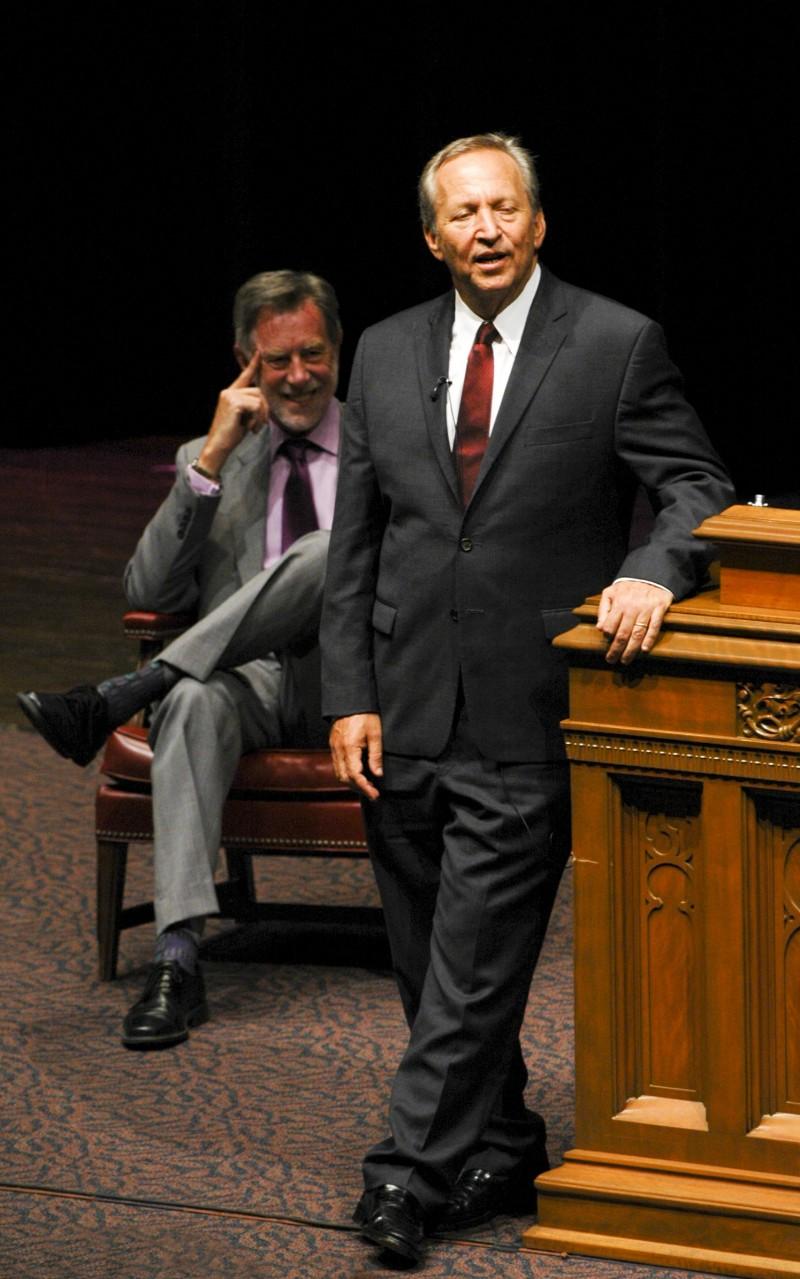
Lawrence H. Summers, former chief economist of the World Bank, former president of Harvard University and member of both the Clinton and Obama administrations, addressed the community at 7:30 p.m. on Tuesday Oct. 4 in Laurie Auditorium, speaking on “Issues Shaping the 2012 Election” as part of the 2012 Distinguished Lecture Series, made possible by an endowment from Mr. and Mrs. Walter F. Brown.
Throughout the lecture, Summers focused on similarities between both presidential candidates’ end goal before stating their differences in policy as disparities in value judgments, empirical judgments and views on the workings of the world.
First, Summers talked about unemployment as an issue of demand.
“We are caught in a trap in which businesses don’t spend and businesses don’t hire,” Summers said.
Summers presented the distinctions in unemployment policy between Barack Obama and Mitt Romney as judgments on the relative risk of unemployment and inflation. Summers used the John F. Kennedy International Airport as an example of the differences between the two candidates. While Obama would view borrowing money to invest in the improvement of what Summers called “the Ellis Island of our century” as a means of confidence in our economy, Romney would view the borrowing and investment as a reason to be less confident in the economy.
Second, Summers talked about the national deficit, saying that both candidates understand the importance of reaching long term fiscal solvency. Summers also said that entitlement programs and revenues are the areas in which adjustments can be made. While Obama wants to combine cuts in entitlement programs with increases in taxes for the wealthy, Romney wants to focus on cuts in entitlement programs.
Third, Summers discussed the issue of regulation. Summers sided with Obama on the need to increase both financial and environmental regulation, stating numerous abuses in the financial sector as well as the recent British Petroleum oil spill and Fukushima nuclear disasters as reasons to enact more regulation. In contrast, Romney calls for decreased regulation.
Fourth, Summers discussed healthcare, applauding the logic of both Romney and Obama’s respective healthcare programs. and calling for a comprehensive healthcare program at the federal level.
Finally, Summers discussed the role of government, especially in relation to research, development and fiscal equality. Summers cited the benefits of government research projects, such as the Internet, to suggest that funding research is a worthwhile endeavor, even if the government does not see returns on most investments.
Summers ended his lecture on a unifying statement of the value of education.
“Whichever side of the spectrum we come down on,” Summers said. “The work of universities is profoundly important to the country’s future.”








